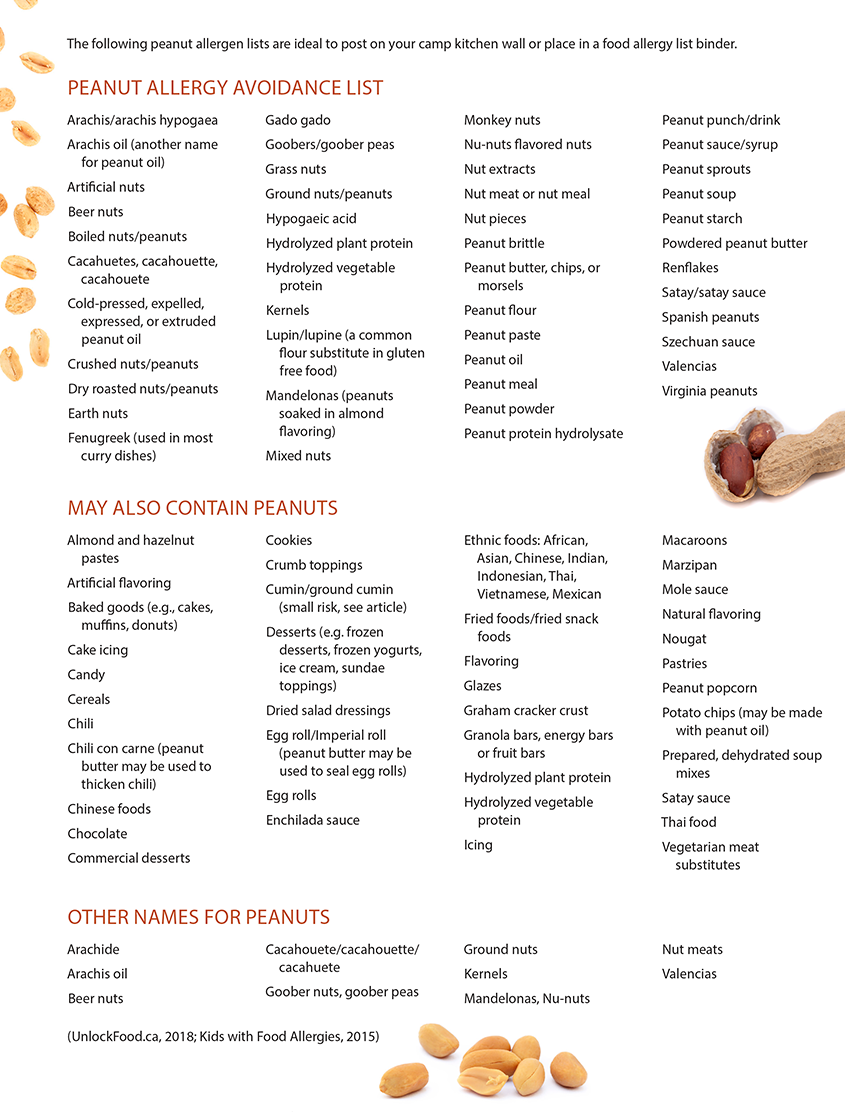Peanut allergy has historically been the most fatal food allergy, comprising 50 to 62 percent of all food allergy deaths annually (Food Allergies Atlanta, 2022). It is also the leading food allergy anaphylaxis trigger for North American pediatric ICU admissions at 39 percent (Lieberman et al., 2020). Still the most common food allergy in children from 4–17 years of age, it affects up to 2 percent, or roughly a million children of all ages (US Food & Drug Administration, 2020). The duration of this menacing allergy is often permanent, although 20 percent of peanut allergic children will outgrow it eventually (FARE, 2022). Current data shows that milk allergy has replaced peanut allergy as the number-one allergy in babies and toddlers from one to five years (Scher, 2018).
Oral Immunotherapy Clinical Trials Offers Hope
Researchers Wesley Burks, MD, of the University of North Carolina at Chapel Hill, and Stacie Jones, MD, of Arkansas Children’s Hospital, launched clinical trials among 146 children ages one through three at five US medical centers. Some of the children were given doses of peanut flour added to other foods such as applesauce incrementally over time to desensitize them to peanuts. Others were given a placebo oat flour, also added to other foods.
The trial began with the children eating 0.5 grams or less of peanut protein, with increased dosages over time. After 30 weeks, the maximum dose was at 2 grams of peanut protein, equivalent to about six to eight peanuts. These daily doses continued for two years, ultimately increasing to 5 grams per dose.
The trial’s immediate result was that 71 percent of children who consumed peanut flour were desensitized to peanuts, while just 2 percent of placebo flour recipients experienced desensitization. The researchers defined desensitization as the ability to eat 5 grams of peanut protein without an allergic reaction.
Finally, six months after treatment, the researchers found that 21 percent of children who had received peanut flour could eat peanuts without having an allergic reaction and were in remission. However, as little as 2 percent of children who had taken the placebo flour were in remission.
These clinical trials, funded by the National Institutes of Health (NIH)’s National Institute of Allergy and Infectious Diseases (NIAID), were overall successful, proving that oral immunotherapy during maturation of the immune system in early life, a child’s positive immune response to peanuts can occur better than waiting until later years (NIH, 2022).
Promising New Treatment
To mollify allergic reactions to unexpected peanut exposure, including anaphylaxis, the US Food and Drug Administration (FDA) approved Palforzia [Peanut (Arachis hypogaea) Allergen Powder-dnfp] on January 21, 2020. Children ages 4–17 years with a confirmed peanut allergy may start treatment with Palforzia. While this is an auspicious development, participants must continue avoiding peanuts in their diets and must be aware that Palforzia is not for emergency treatment upon exposure to peanuts (FDA, 2020).
“Because there is no cure (for peanut allergy), allergic individuals must strictly avoid exposure to prevent severe and potentially life-threatening reactions,” said Peter Marks, MD, PhD, director of the FDA’s Center for Biologics Evaluation and Research (FDA, 2020).
Peanut Allergy Causation and Correlations
Peanut allergy happens when an individual is exposed to peanut and proteins in the peanut bind to specific IgE antibodies created by that individual’s immune system. Subsequent exposure to peanut protein, usually by oral ingestion, prompts the individual’s immune defenses and causes allergic reactions ranging from mild to severe (FARE, 2022).
Peanuts are actually in the lentil family — along with beans and peas — which are plants in the category of Fabaceae or the fruit or seed of the plant. While not botanically related to tree nuts such as walnuts, almonds, or cashews, approximately 35–40 percent of US toddlers with peanut allergy have or will develop a tree nut allergy. The propensity for this co-allergy is why physicians recommend children with peanut allergy avoid tree nuts as well (FARE, 2022; Kids with Food Allergies, 2015).
What About Peanut oil?
Highly refined peanut oil can be safely consumed by individuals with peanut allergy and is not required to be labeled as an allergen according to the Food Allergen Labeling and Consumer Protection Act of 2004, as refined oils contain extremely small or “trace” amounts of allergenic protein. Importantly, note that expeller pressed, extruded, or cold-pressed peanut oil does contain greater amounts of peanut protein and is required to be explicitly listed on an ingredient label as “peanut.” These peanut oils should not be consumed by those with peanut allergy (Kids with Food Allergies, 2015).
Cumin and Paprika — Potential Peanut Allergy Risk
The Canadian Food Inspection Agency discovered in October 2014 that packages of Ortega taco seasoning containing cumin had been cross contaminated with peanuts and almonds and issued a recall. FDA testing confirmed the contamination and an advisory was issued urging US consumers to avoid cumin. By February 2015, about 675 products were removed from retailers. The cumin had been widely distributed to the US, the United Kingdom (UK), and Canada. The UK’s Food Standards Agency also found peanut in cumin powder and extended the contamination to powdered paprika.
Although specific processing locations have yet to be found, testing of the products confirmed the presence of ground peanut shells and pieces, likely to add bulk to the cumin after crop failure (Emport LLC, 2017; Extra Matter, 2021).
The contaminated cumin was in various seasoning mixes and cooking kits, including Tex-Mex and Indian dishes. Highly sensitive peanut-allergic individuals may consider avoiding products with “cumin” listed on the package. (Food Safety News, 2015).
It is important to note that much of the cumin and paprika cross contamination seems to have been resolved as of this printing, barring any contaminated items that made it into kitchens before recalls and still remain. To be certain no risk remains, ensure that your kitchen does not contain outdated cumin or paprika, or any spice kits containing them. Also note that some spice mixtures do not list their contents, which is an accepted trade secret. Before serving campers/staff who are highly sensitive to peanuts, you may need to call the manufacturer to find out if plainly listed “spices” contain cumin powder or paprika. As with all food allergens, check and double-check all ingredients before serving.
Nuts Are Not Necessary at Camp
A nut-free camp has several positives, including:
- Cost-effectiveness
- Easily omitted in baked goods
- Unnecessary for sandwiches (sunflower butter or pumpkin seed butter are possible substitutes)
- Easily replaceable as snacks (consider substitutions like sunflower and pumpkin seeds, roasted chickpeas, dried cranberries, apricots, and raisins in trail mix)
Camper and staff safety remain our utmost priority. If the elimination of nuts in our kitchen, snack time, or canteen ensures that safety, we should consider it a small sacrifice for the sake of others.
Peanut Allergy Signs and Precautions
A stereotypical peanut allergy reaction usually occurs within minutes and could include (Mayo Clinic, n.d.):
- Skin reactions, such as hives, redness, or swelling
- Itching or tingling in or around the mouth and throat
- Digestive problems, such as diarrhea, stomach cramps, nausea, or vomiting
- Tightening of the throat
- Shortness of breath or wheezing
- Runny nose
Be sure campers with known peanut allergies have epinephrine at check in, with them, and always accessible. Help to ensure EpiPens stay at proper temperature, 68–77 degrees Fahrenheit. Seconds count during an anaphylaxis episode (Hourihane, 2011).
Note that other food allergies, especially an egg allergy, can also indicate a peanut allergy (Hourihane, 2011).

References
- Emport LLC. (2017, May 31). Know your sources! Food fraud and spices. Emportllc.com/2017/05/31/know-your-food-fraud-spices
- Extra Matter. (2021, May 14). Digging into contaminated cumin. Eat This Podcast. eatthispodcast.com/digging-into-contaminated-cumin/
- FARE. (2022). What is peanut allergy? foodallergy.org/living-food-allergies/food-allergy-essentials/common-allergens/peanut
- Food Allergies Atlanta. (2022). Is a peanut allergy dangerous? foodallergiesatlanta.com/food-allergy-blog/is-a-peanut-allergy-dangerous
- Food Safety News. (2015, February 18). Update: FDA consumer advisory suggests those with peanut allergies avoid ground or powdered cumin. foodsafetynews.com/2015/02/fda-people-with-peanut-allergies-should-avoid-products-with-ground-cumin/
- Hourihane, J. O. (2011, April). Peanut allergic. Food allergy in children. Pediatric Clinics of North America 58 (2): 445-58.
- Kids with Food Allergies. (2015). Peanut allergy. Kidswithfoodallergies.org/peanut-allergy.aspx
- Lieberman, J. A., Gupta, R. S., Knibb, R. C., Haselkorn, T., Tilles, S., Mack, D. P., & Pouessel, G. (2020, November 20). The global burden of illness of peanut allergy: A comprehensive literary review. Allergy. onlinelibrary.wiley.com/doi/10.1111/all.14666
- Mayo Clinic. (n.d.). Peanut allergy. mayoclinic.org/diseases-conditions/peanut-allergy/symptoms-causes/syc-20376175
- National Institutes of Health. (2022, February 8). Oral immunotherapy for peanut allergy in young children. National Institute of Allergy and Infectious Diseases. nih.gov/news-events/nih-research-matters/oral-immunotherapy-peanut-allergy-young-children#:~:text=Results%20appeared%20in%20the%20Lancet%20on%20January%2022%2C,peanut%20protein%20at%20the%20start%20of%20the%20trial
- Scher, A. (2018, November 16). Move over, peanuts: Milk allergy more common in kids, study says. NBC News. nbcnews.com/health/kids-health/move-over-peanuts-milk-allergy-more-common-kids-study-says-n937276
- UnlockFood.ca. (2018, April 26). More on peanut allergies: a list of foods that may contain peanuts. unlockfood.ca/en/Articles/Food-allergies-intolerances/More-on-peanut-allergies--A-list-of-foods-that-may-contain-peanuts.aspx
- US Food & Drug Administration. (2020, January 31). FDA approves first drug for treatment of peanut allergy in children. fda.gov/news-events/press-announcements/fda-approves-first-drug-treatment-peanut-allergy-children#:~:text=FDA%20NEWS%20RELEASE-,FDA%20approves%20first%20drug%20for%20treatment%20of%20peanut%20allergy%20for%20children,-Share
Kimberly Whiteside Truitt is former food service manager at Camp Gilmont and Camp Zephyr and has served on Camping Magazine’s Editorial Advisory Committee. Kimberly was a presenter at the 2018 and 2020 North American Food Service and Maintenance Conferences.




